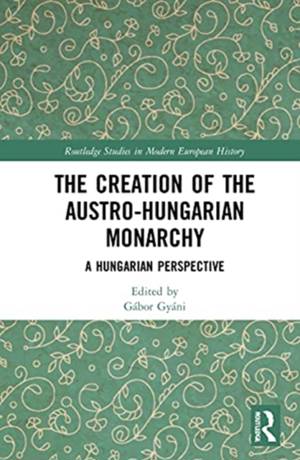
- Afhalen na 1 uur in een winkel met voorraad
- Gratis thuislevering in België vanaf € 30
- Ruim aanbod met 7 miljoen producten
- Afhalen na 1 uur in een winkel met voorraad
- Gratis thuislevering in België vanaf € 30
- Ruim aanbod met 7 miljoen producten
The Creation of the Austro-Hungarian Monarchy
A Hungarian Perspective
Omschrijving
Recent collection of essays discusses the historical event and the multifarious consequences of the 1867 Compromise (Ausgleich, Settlement), conducted between the Habsburg monarch, Francis Joseph and the Hungarian political ruling class. The whole story has usually been narrated from a plainly Cisleithanian viewpoint. The present volume, the product of Hungarian historians, gives an insight into both the domestic and the international historical discourses about the Dual Monarchy. It also reveals the process of how the 1867 Compromise was conducted, and touches upon several of the key issues brought about by establishing a constitutional dual state in place of the absolutist Habsburg Monarchy. The emphasis is laid not on describing and explaining the path leading to the final and "inevitable" break-up of the Dual Monarchy, but on what actually held it together for half a century. The local outcomes of self-maintaining mechanisms were no less obvious in the Hungarian part of the Dual Monarchy, despite the many manifestations of an overt adversity toward it. The Creation of the Austro-Hungarian Monarchy will appeal to historians dealing especially with 19th-century European history, and is also essential reading for university students.
Specificaties
Betrokkenen
- Uitgeverij:
Inhoud
- Aantal bladzijden:
- 352
- Taal:
- Engels
- Reeks:
Eigenschappen
- Productcode (EAN):
- 9781032049144
- Verschijningsdatum:
- 30/09/2021
- Uitvoering:
- Hardcover
- Formaat:
- Genaaid
- Afmetingen:
- 152 mm x 229 mm
- Gewicht:
- 657 g

Alleen bij Standaard Boekhandel
Beoordelingen
We publiceren alleen reviews die voldoen aan de voorwaarden voor reviews. Bekijk onze voorwaarden voor reviews.








